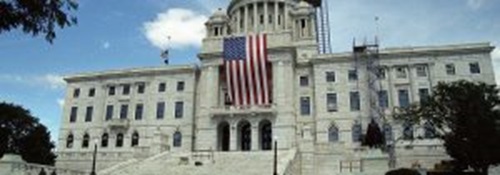Whitehouse: Offshore Tax Evasion by Big Corporations, the Wealthy Cheats American People

SHELDON WHITEHOUSE
“When people who’ve got the most money cheat on people who’ve got the least money, by avoiding their taxes to get even richer, there’s a price.”
Washington, D.C.—In advance of Tax Day on Monday, U.S. Senator Sheldon Whitehouse (D-RI), Chairman of the U.S. Senate Budget Committee, delivered the following opening statement at today’s hearing, titled “Sunny Places for Shady People: Offshore Tax Evasion by the Wealthy and Corporations.”
Chairman Whitehouse’s remarks, as prepared for delivery:
On Tax Day Monday, the vast majority of Americans will have paid the taxes they owe. That’s because most Americans have taxes taken out of every paycheck, automatically and on time. Most Americans understand that paying taxes is not just a legal obligation, it’s also a duty to their communities and country.
But there are superrich individuals and giant corporations who choose not to pay their fair share of taxes. Instead, they choose to cheat everyone. They hide income in offshore tax havens and construct sham transactions and entities to cheat everyone else.
Most Americans don’t have offshore bank accounts; the superrich stash nearly $2 trillion in offshore tax havens. The top 0.01%, representing only about 13,000 households, hold more than a third of that, often held through tangled webs of shell companies.
The IRS estimates tax cheats cost the US at least $688 billion in 2021 alone. Trump’s IRS Commissioner Charles Rettig told the Senate Finance Committee that the annual tax gap could be $1 trillion. One of our witnesses, Stephen Curtis, estimates that we could raise $600 billion from just a handful of scofflaw corporations for many years’ worth of unpaid taxes. We’ve seen in my lifetime a collapse in the share of United States revenues that corporations contribute — down to six percent. A lot of that collapse is through tax tricks like offshoring.
In 2010, Congress gave the IRS a new tool to root out offshore evasion by individuals. The Foreign Account Tax Compliance Act, or FATCA, made foreign banks report offshore accounts held by Americans to the IRS. But Republicans hamstrung the IRS, and in 2018 the Treasury Inspector General for Tax Administration found that “the IRS had taken virtually no compliance actions to meaningfully enforce FATCA.” Most Americans had their incomes reported to the IRS by their employer; the superrich with offshore accounts were on the honor system. Guess how that worked out.
For large multinational corporations, compliance can turn on whether the IRS can investigate through the armies of lawyers, accountants, and even lobbyists that corporations employ to avoid taxes.
A huge amount of revenue can be hidden by a big corporation. The IRS has taken one pharma giant to court for $10 billion in unpaid taxes — more than the entire proposed FDA budget for next year. The Senate Finance Committee investigation showed this company reported 60% of its profits offshore despite making 74% of sales to U.S. patients.
Facebook owes $9 billion for its own offshore tax schemes, according to the IRS – enough to fund President Biden’s proposal to expand health coverage for kids.
Microsoft, according to the IRS, owes a whopping $29 billion for what one of its executives called “a pure tax play,” enough lost revenue to fund a $10,000 tax credit for first-time homebuyers.
For years, the outgunned IRS hampered by Republican budget cuts struggled against billionaires and corporations with virtually unlimited resources at their disposal.
In the Facebook case, with time ticking on the statute of limitations, the company sought to run out the clock on the IRS’ investigation. Republican budget cuts meant the IRS had to pause its audit because it didn’t have the money to hire an economist.
What can we do to stop offshore tax evasion?
First, we must preserve and extend the enforcement funding enacted by the Inflation Reduction Act. We’re already seeing the enforcement results: since last fall, the IRS has recovered nearly $500 million from millionaires who didn’t even bother to file tax returns.
Second, the IRS and Treasury should enforce the FATCA law. Mr. Curtis has outlined additional enforcement strategies that deserve serious consideration. Treasury should use its rulemaking authority to close loopholes and improve consistency and fairness. A good place to start would be reversing the so-called “check-the-box” regulations for foreign subsidiaries, as Ms. Milin mentions in her testimony.
Cracking down on offshore tax cheating would raise billions of dollars a year, to invest in our economic future or reduce the deficit.
But it is not just about dollars and cents; it’s also about basic fairness.
When people who’ve got the most money cheat on people who’ve got the least money, by avoiding their taxes to get even richer, there’s a price. Law-abiding taxpayers have to pick up the slack; public services go underfunded; deficits worsen; and, oh by the way, it’s wrong to cheat, and a Congress that takes the side of the cheats demeans itself.
Some colleagues think the only way to reduce deficits is to take away government services. That’s obviously not true. Some colleagues would rather cut Social Security and Medicare, or withhold child tax credits, than crack down on big tax cheaters. That would be wrong.

If we stop giving big tax cheaters amnesty for their scams; if we clean up our corrupted tax code; and if we make important value-based health care reforms, we can make real progress reducing deficits.
